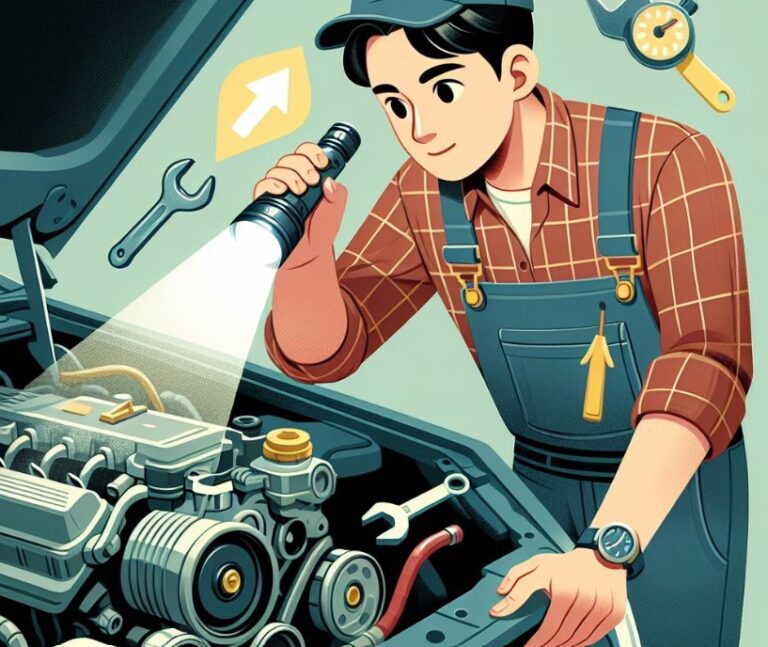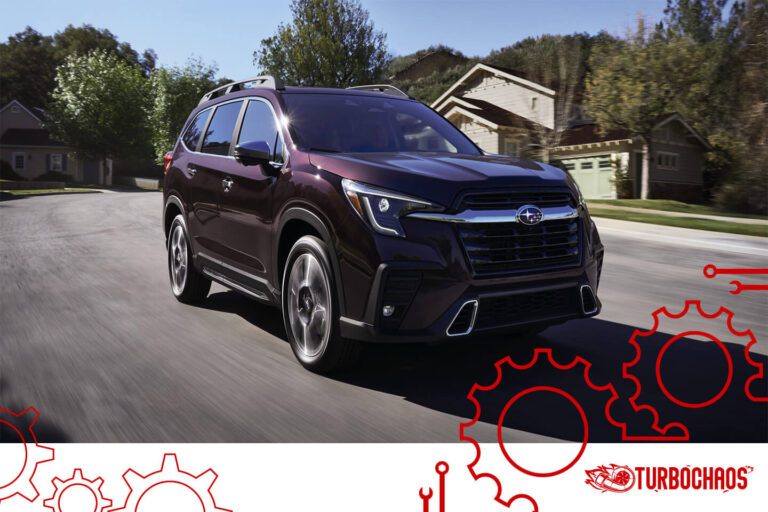How Hot Does A Lawn Mower Engine Get? Quick Answer
Understanding the operational temperature of a lawn mower engine is vital for its maintenance and longevity. The How Hot Does A Lawn Mower Engine Get? question is more than just a matter of curiosity. It is about safeguarding your equipment and ensuring efficient operation. In this comprehensive guide, we dive deep into the mechanics of lawn mower engines, exploring their heat generation, factors affecting temperature, and ways to manage it effectively.
Key Takeaways
- The average temperature range of a lawn mower engine is between 200°F and 250°F.
- Several factors influence the engine’s temperature, including the model, environmental conditions, and maintenance routines.
- Proper maintenance and cooling systems are crucial in managing the engine’s temperature effectively.
How Hot Does A Lawn Mower Engine Get?
A lawn mower engine typically operates at a temperature ranging between 200°F and 250°F under normal conditions.
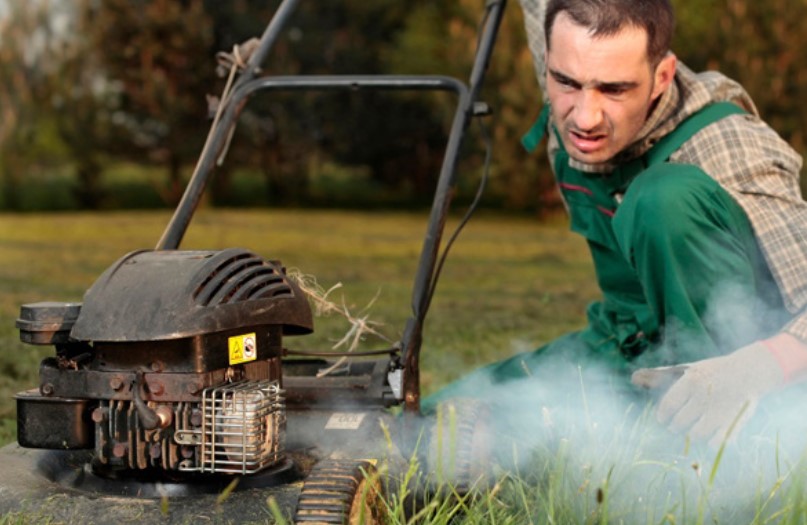
Typical Temperature Ranges
Lawn mower engines typically operate within a temperature range of 200°F to 250°F. This range can fluctuate based on various factors, including engine design, usage intensity, and ambient temperature. It’s crucial to understand that these temperatures are normal for a well-functioning engine.
Factors Influencing Engine Temperature
The heat generated by a lawn mower engine is affected by:
- Engine Type and Design: Different models have varying heat tolerance and generation.
- Usage and Load: Prolonged or intense use can increase the engine’s temperature.
- Ambient Temperature: Higher outdoor temperatures can lead to increased engine heat.
- Maintenance and Upkeep: Poor maintenance can cause the engine to overheat.
Understanding Engine Heat Management
Cooling Systems in Lawn Mower Engines
Modern lawn mowers are equipped with sophisticated cooling systems. These systems are designed to maintain optimal operating temperatures and prevent overheating, which can be detrimental to the engine’s health.
Importance of Regular Maintenance
Regular maintenance, including cleaning the air filters and ensuring proper oil levels, is crucial for efficient heat management. Neglecting these aspects can lead to excessive heat build-up, reducing the engine’s lifespan.
Environmental Impact on Engine Temperature
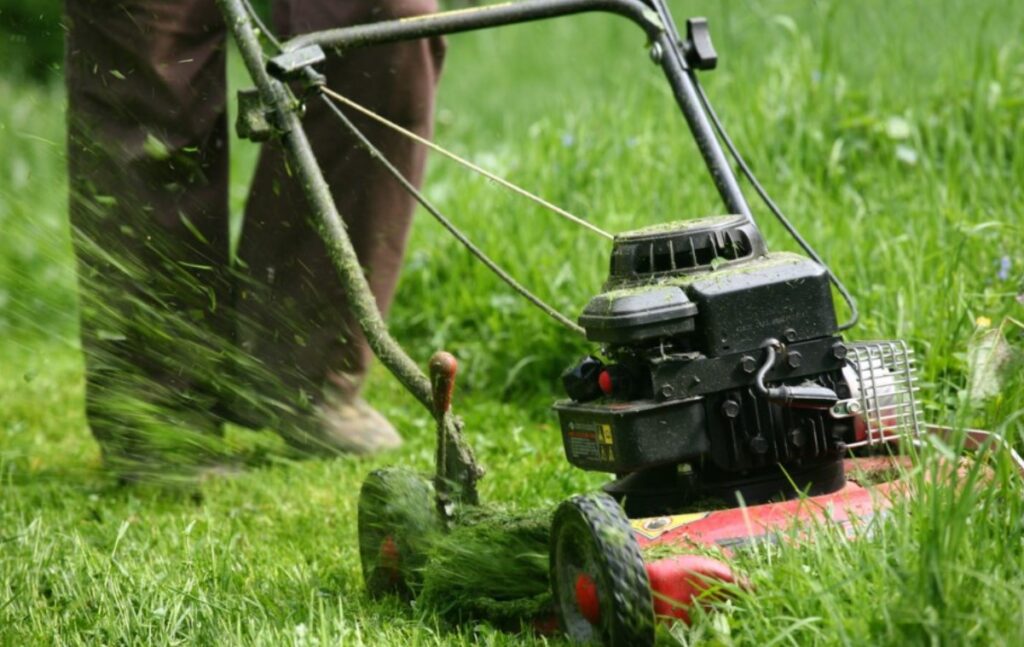
Effect of Ambient Conditions
Ambient temperature plays a significant role in determining how hot a lawn mower engine gets. In hotter climates, engines tend to run at higher temperatures, making it essential to monitor and manage the heat effectively.
Seasonal Variations and Their Impact
Seasonal changes can also influence the engine’s temperature. During summer, the engine might run hotter due to the increased ambient temperature, whereas, in cooler months, the engine may not reach its maximum operating temperature as quickly.
Maintenance Tips for Optimal Temperature Control
Regular Check-Ups and Servicing
Ensuring your lawn mower is serviced regularly is key to maintaining optimal engine temperatures. This includes checking the coolant levels, cleaning the radiator, and replacing any worn-out parts.
DIY Maintenance Practices
Simple DIY maintenance practices, such as cleaning the air filters and checking oil levels, can significantly impact the engine’s temperature management. These routine checks help in preventing overheating and maintain efficient operation.
Advanced Cooling Technologies in Modern Lawn Mowers
Innovations in Engine Design
With advancements in technology, newer lawn mower models come equipped with more efficient cooling systems. These systems are designed to handle higher temperatures and reduce the risk of overheating.
The Role of Smart Technologies
Smart technologies, such as sensors and automated cooling mechanisms, are increasingly being integrated into lawn mowers. These innovations provide real-time monitoring and adjustments, enhancing the engine’s heat management capabilities.
How Hot Does A Lawn Mower Muffler Get?
The muffler on a lawn mower, an integral part of the exhaust system, can get quite hot during operation. It’s not unusual for the temperature to reach upwards of 500°F or even higher, especially during extended use or under heavy load.
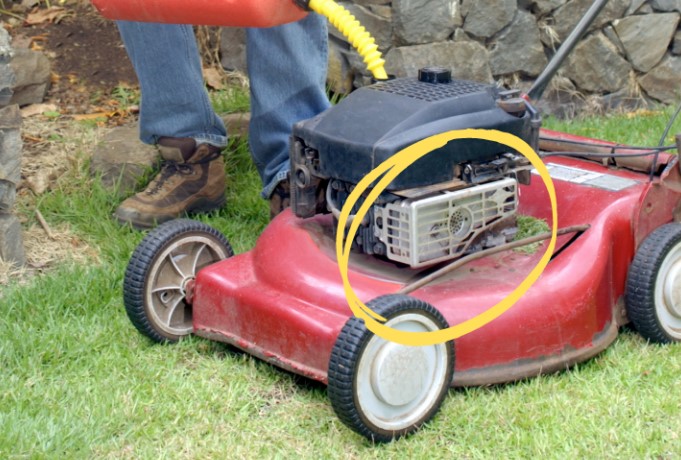
This high temperature is due to the muffler’s role in expelling exhaust gases, which are heated as a result of combustion in the engine.
The specific temperature can vary based on the lawn mower’s make and model, as well as the engine’s size and design. It’s crucial to handle the muffler with care, especially immediately after use, to avoid burns or accidents.
Do Lawn Mower Engines Overheat?
Lawn mower engines can indeed overheat, particularly when they are subjected to extreme conditions or are not maintained properly. Overheating in lawn mower engines is typically a result of factors such as a clogged air filter, low oil levels, a malfunctioning cooling system, or extended operation under high load.
Environmental factors like high ambient temperatures can also contribute to this issue. Regular maintenance, including cleaning air filters and checking oil levels, is essential to prevent overheating and ensure the longevity of the engine.
How Do I Know If My Lawnmower Is Overheating?
Identifying an overheating lawnmower is critical for preventing damage. Signs include loss of power, engine stalling, a burning smell, or visible smoke coming from the engine area. Additionally, the engine may feel excessively hot to the touch.

Modern lawn mowers might have a temperature gauge or warning light indicating overheating. If you notice these symptoms, it’s important to stop the mower immediately to avoid further damage and let the engine cool down before inspecting it for potential causes.
How Do I Cool My Lawn Mower Engine?
Cooling a lawn mower engine effectively involves several steps. First, stop the engine and let it rest to naturally lower its temperature. Ensure the mower is in a shaded or cool area to facilitate this process.
Check the engine for any debris, like grass clippings, that might be blocking the air flow and remove them. Inspect the cooling fins and air passages for blockages.
Regular maintenance like changing the oil, cleaning or replacing air filters, and ensuring the coolant level (if applicable) is adequate are also crucial for preventing overheating. In some cases, it may be necessary to seek professional assistance, especially if the overheating issue persists.
How Hot Does A Commercial Mower Engine Get?
Commercial mower engines, designed for more intensive use, typically operate at higher temperatures compared to standard residential models.
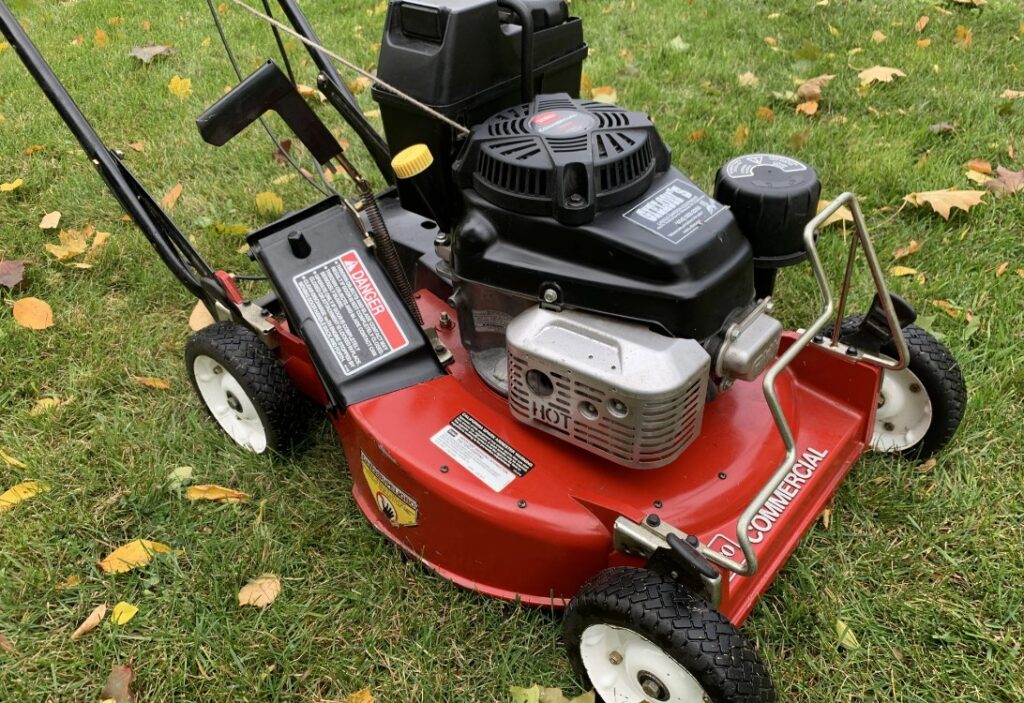
These engines can reach temperatures ranging from 250°F to over 300°F under normal operating conditions. The exact temperature depends on factors such as the engine’s design, the intensity of use, and ambient environmental conditions.
Due to their robust nature, commercial mowers often come with advanced cooling systems to handle these higher temperatures. Nevertheless, regular maintenance and monitoring are still essential to ensure these engines operate within safe temperature ranges.
Conclusion
Understanding and managing the temperature of your lawn mower engine is crucial for its performance and longevity. Regular maintenance, awareness of environmental factors, and leveraging advanced cooling technologies are key to ensuring your lawn mower operates within the safe temperature range of 200°F to 250°F. By taking these steps, you can extend the life of your lawn mower and ensure its efficient operation.
Frequently Asked Questions
How do I check the temperature of my lawn mower engine?
The temperature of a lawn mower engine can be checked using an infrared thermometer. Aim it at the engine block to get a temperature reading. Some newer models come with built-in temperature gauges for easy monitoring.
Can modifications or upgrades help in better temperature management?
Yes, modifications like upgrading the cooling system, using high-quality engine oil, or installing temperature sensors can help in better managing the engine’s temperature. However, it’s important to consult a professional before making any modifications.
Are there any long-term effects of running a lawn mower engine too hot?
Continuously operating a lawn mower engine at temperatures above the recommended range can lead to increased wear and tear, reduced efficiency, potential engine damage, and a shorter lifespan of the mower.
What maintenance practices are crucial for temperature control?
Key maintenance practices include regularly changing the oil, cleaning or replacing air filters, checking the cooling system, inspecting the mower blades, and ensuring the engine is free of debris.
Does engine size affect how hot a lawn mower engine gets?
Yes, the size and type of the engine can affect its operating temperature. Larger engines or those with higher horsepower may generate more heat, necessitating a more robust cooling system.

Welcome to the exhilarating world of Matt Rex, a professional car racer turned renowned vehicle enthusiast. Immerse yourself in his captivating blog as he shares heart-pounding adventures, expert reviews, and valuable insights on cars, trucks, jets, and more. Fuel your passion for speed and discover the beauty of vehicles through Matt’s engaging stories and meticulous expertise. Join the ever-growing community of enthusiasts who find inspiration and expert advice in Matt Rex’s blog—a digital hub where the thrill of speed meets the pursuit of knowledge.

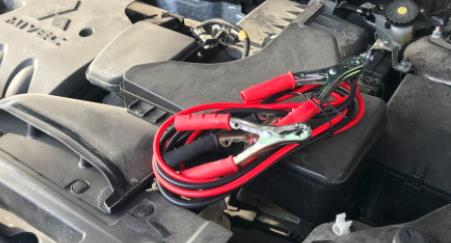

![Does Hyundai Digital Key Work With Iphone? [Explained]](https://www.turbochaos.com/wp-content/uploads/2023/12/Does-Hyundai-Digital-Key-Work-With-Iphone-768x483.jpg)

